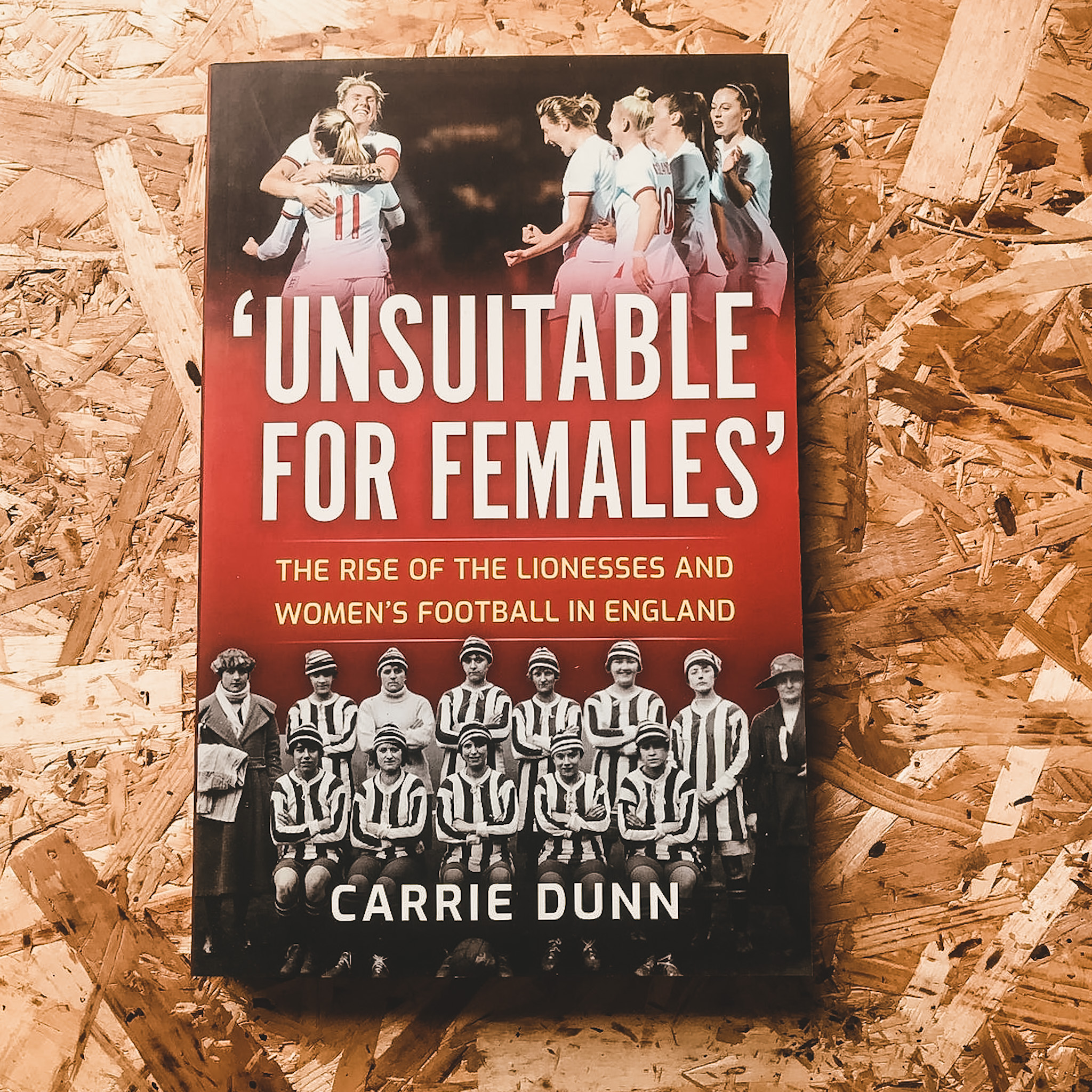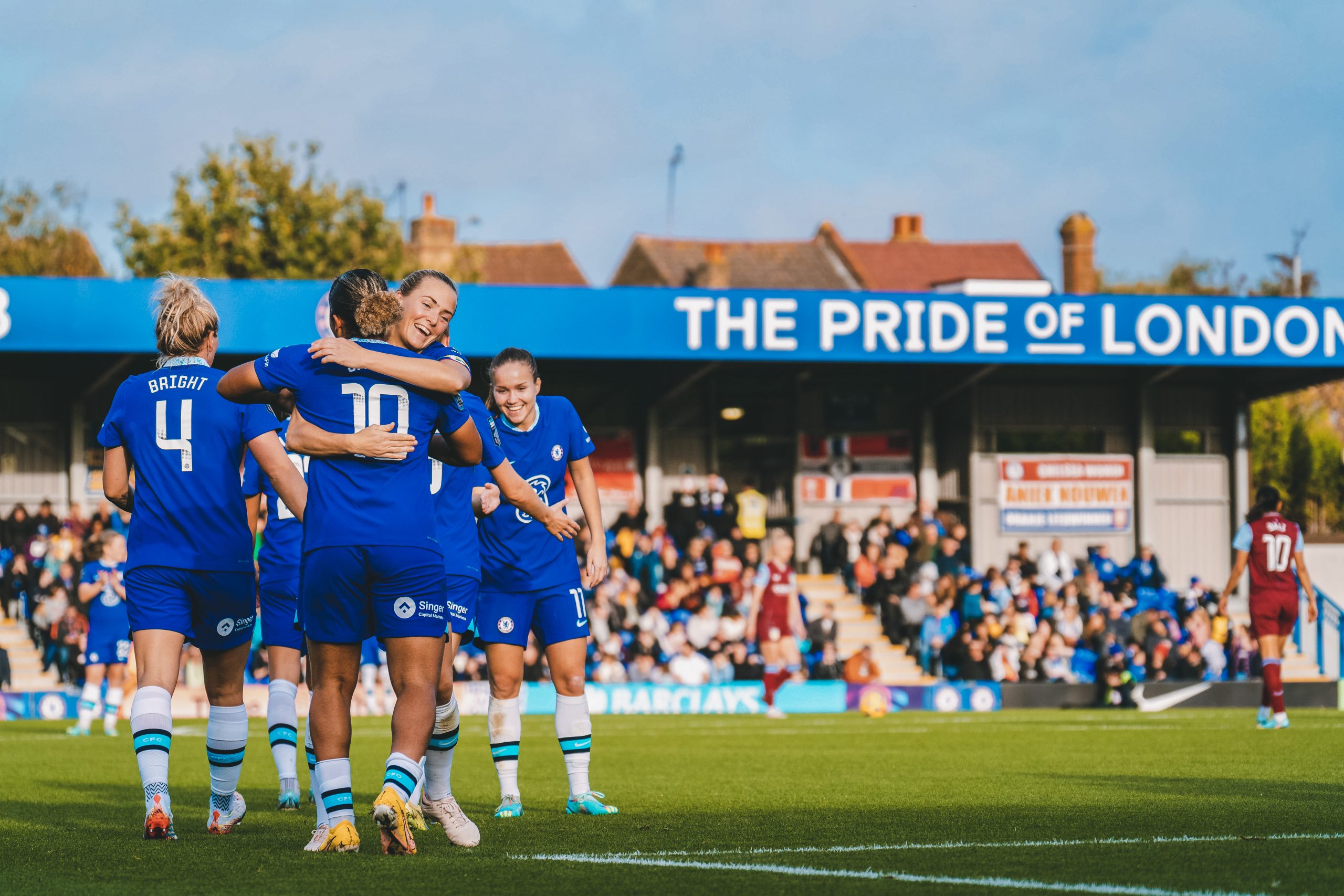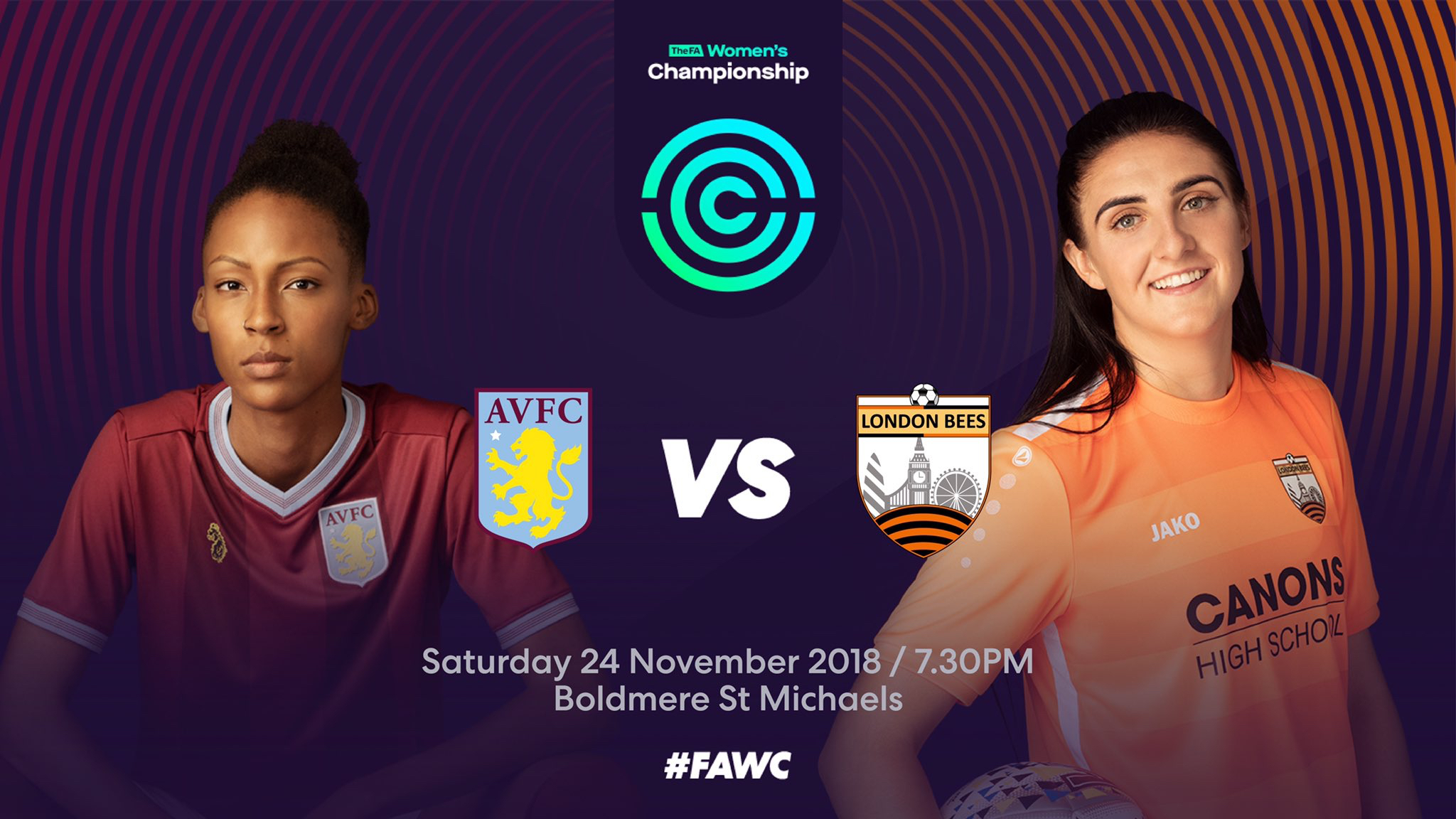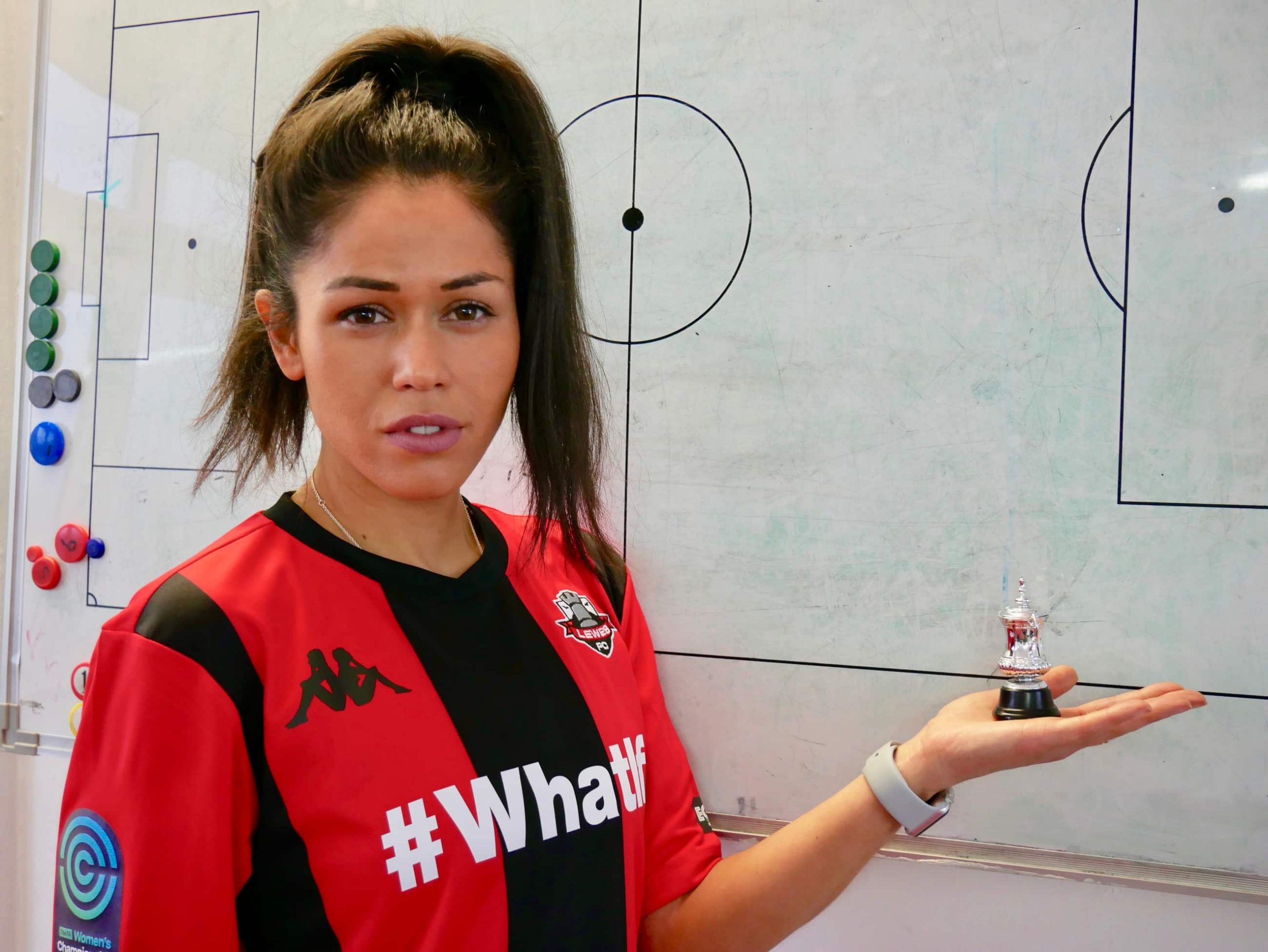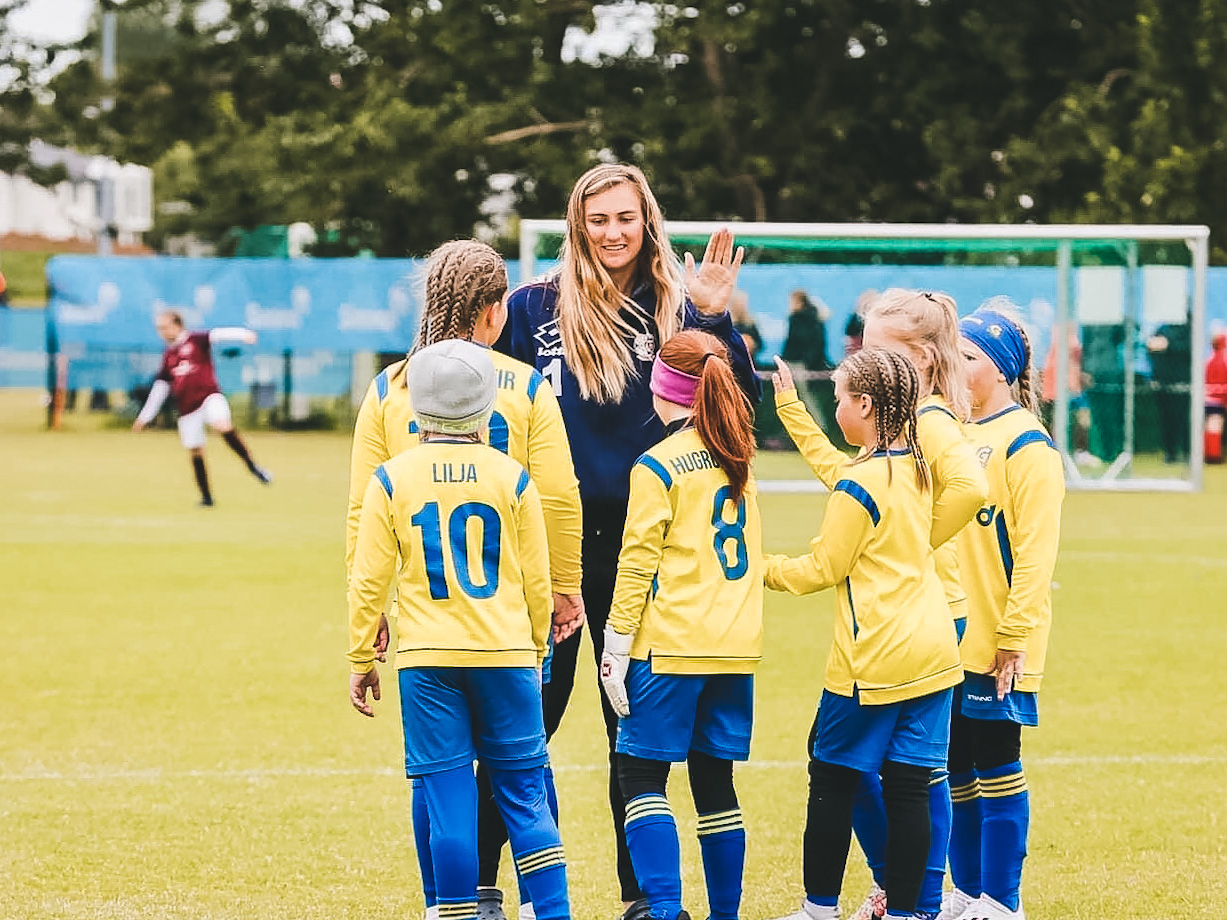Waking up this morning I am seeing exposure to the women’s game like never before. It’s fantastic and we’ll see so many new fans get into the women’s game, however, many will have little or no idea about what came before and the struggles to climb to the summit of European football.
Many of these aforementioned new fans are also likely to be old enough to remember the 1960s when female participation was banned. Since the lifting of that ban in 1971 women’s football has been on quite a journey and Carrie Dunn has captured that history perfectly in her book ‘Unsuitable for Females’: The Rise of the Lionesses and Women’s Football in England.
To long-time followers of the women’s game, Carrie Dunn needs no introduction, she is one of the game’s most respected writers working with the Guardian, the Time and Eurosport to name a few.
The book tells the story of women’s football in England since its 19th-century inception through pen portraits of its trailblazers and how despite official prohibition the women’s game went underground. From the Dick, Kerr Ladies touring the world to the Lost Lionesses who played at the unsanctioned Women’s World Cup in Mexico in 1971, generations of women defied the restrictions and laid the foundations for today’s Lionesses – so much so that in 2018 England’s Women’s Super League became the first fully professional league in Europe…when just a few decades previously women were forbidden to play the sport in England at all.
In celebration of the Lionesses’ win, we are giving away a copy of the book to one lucky follower but before we share how you can enter, I have caught up with Carrie to find out how she is feeling about England’s win.
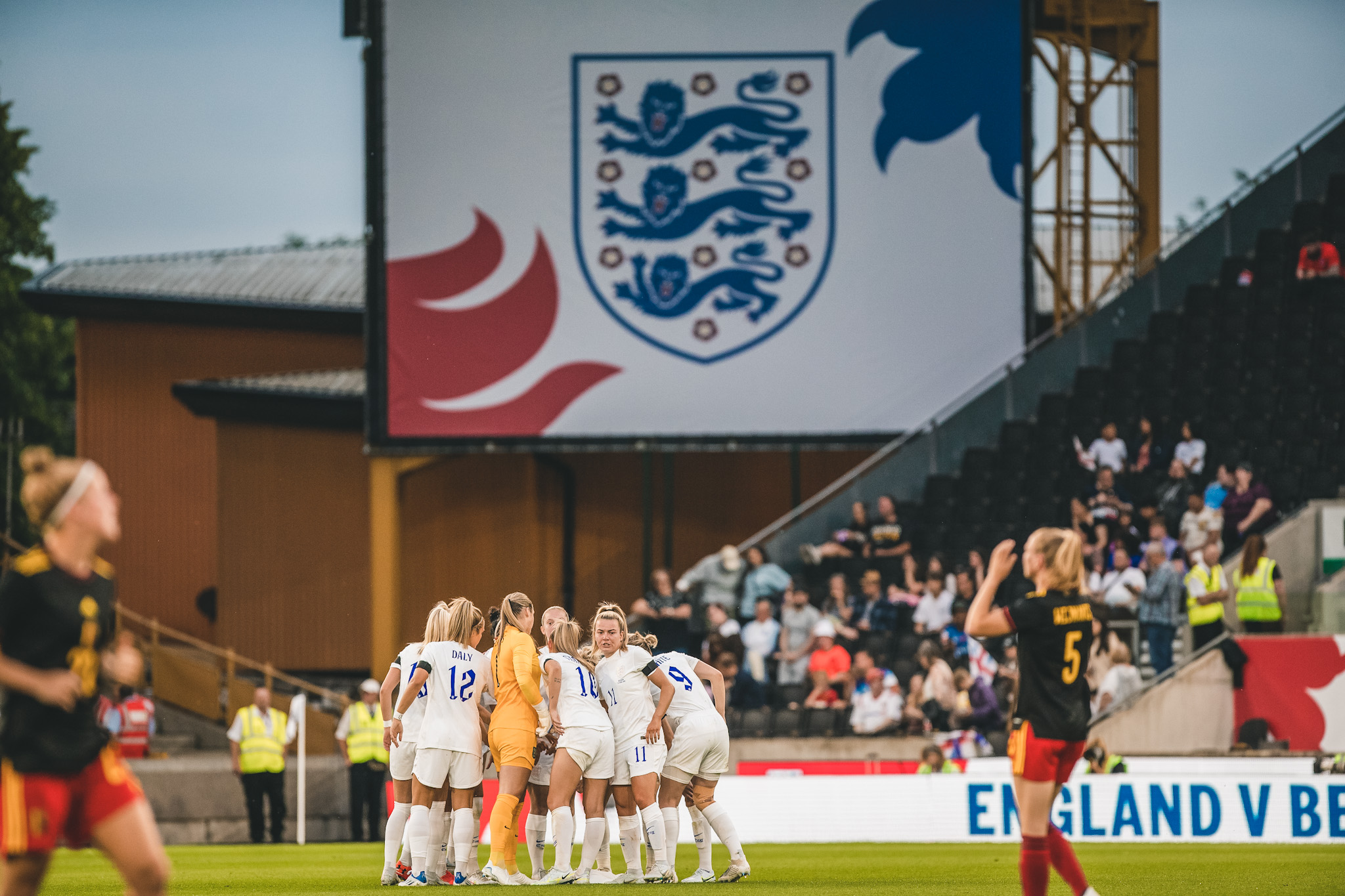
Could you tell me about how you experienced yesterday’s final and how you feel this morning?
I am so SO happy. Since the semi-final I have been both anxious and excited, and yesterday was not just one of the best days of my career, but one of the best days in my life. I’ve been writing about women’s football for almost 20 years, since I began in journalism, and watching it for even longer, and winning a major trophy is incredible.
You remember the 2009 final in Helsinki’s Olympic Stadium where it was Germany who overcame England 6-2. Is there one particular factor that has aided England in their journey to win these European Championships?
Investment, pure and simple. That 2009 team was full of players whose names most casual watchers would recognise now – Rachel Brown-Finnis, Casey Stoney, Alex Scott, Fara Williams, Karen Carney, Kelly Smith – but it’s so important to remember that even though it seems quite recent, it’s aeons ago when it comes to the game’s progress in England. It was before the Women’s Super League started; those players were semi-professional at best, and there certainly wasn’t the talent pathway that’s begun to create such success.
What would you like the lasting legacy to be from this to be?
I think for me this is important not just for women’s football or women’s sport, but women in society – the Lionesses are top-class professional athletes and they have been given the support and the backing and the finance they need to succeed. Every child should have that. More directly with the game, I share that wish to have women’s football recognised in its own right as a brilliant spectacle – let’s stop with the tedious comparisons, and the use of a male player to describe a female one as a matter of course.
Jill Scott played in both finals. With rumours of her hanging up her boots and retiring from the game circulating but would you like to see her continue to play next season?
Whatever Jill wants is absolutely fine by me. She’s earned it.
With regards to ‘Unsuitable for Females’ you shared a lot of stories from the early years of the women’s game. Without wanting to spoil the book, is there one in particular that stands out the most to you?
I think so many of the stories I was privileged to tell in ‘Unsuitable for Females’ are simply incredible. On a personal level I was so pleased to be able to speak to the legendary Karen Walker of Doncaster Belles and England – she is one of the players I remember watching when I was a little girl and it was brilliant to be able to thank her (and so many other interviewees) for everything they’ve done for the women’s game, even when very few people were watching.
I also loved speaking to Linda Curl, the first woman to score a goal for England in a European final – she is absolutely brilliant and has so many great stories…I can’t get over her realising that if she wanted to go into surveillance in the police, she’d have to give up football, because the local newspapers put her picture on the front pages so often!
This win must have inspired you personally to pick up you pen (or open your laptop), what are you currently working on or are there new stories that you’d like to tell?
There are always more stories to tell – particularly in the women’s game! I’m working on a new project and I hope soon I’ll be able to announce it!

If you would like to be in with a chance of winning then it’s super simple, follow @Since71Blog, @CarrieSparkle and like the tweet linked here. A winner will be announced via Twitter tomorrow evening so keep an eye out.
Carrie has also published ‘The Pride of the Lionesses’ (Pitch, 2019), longlisted for Football Book of the Year at the Telegraph Sports Book Awards 2020, and named one of FourFourTwo’s best books of the year, and a sequel to ‘The Roar of the Lionesses: Women’s Football in England’ (Pitch, 2016), one of the Guardian’s best sports books of 2016. All are available now from all good retailers and Amazon.





